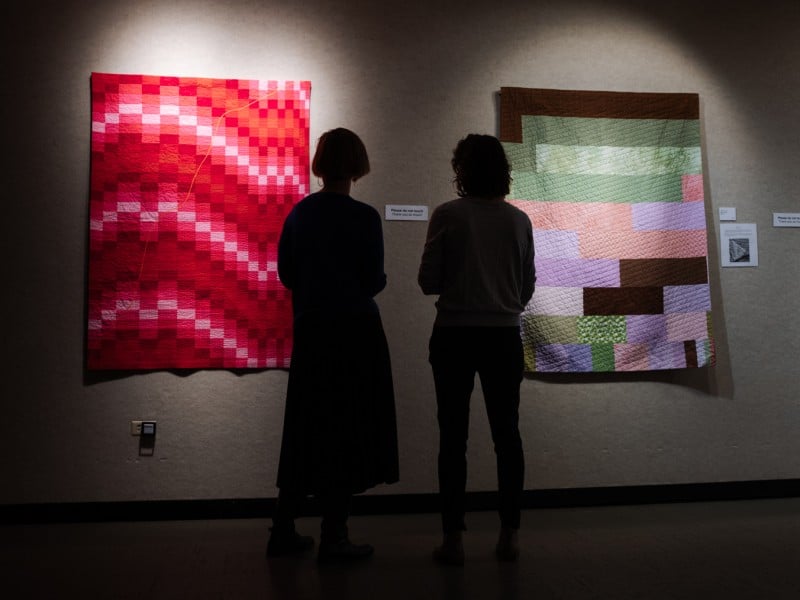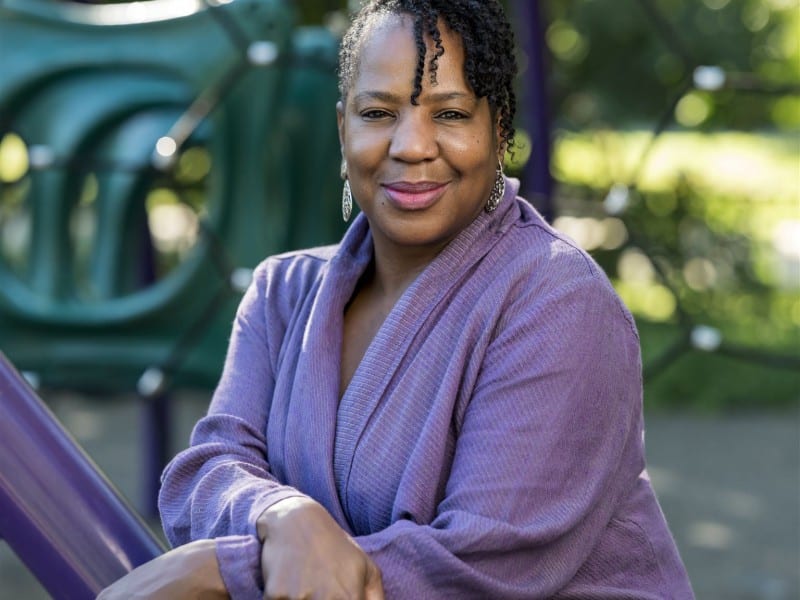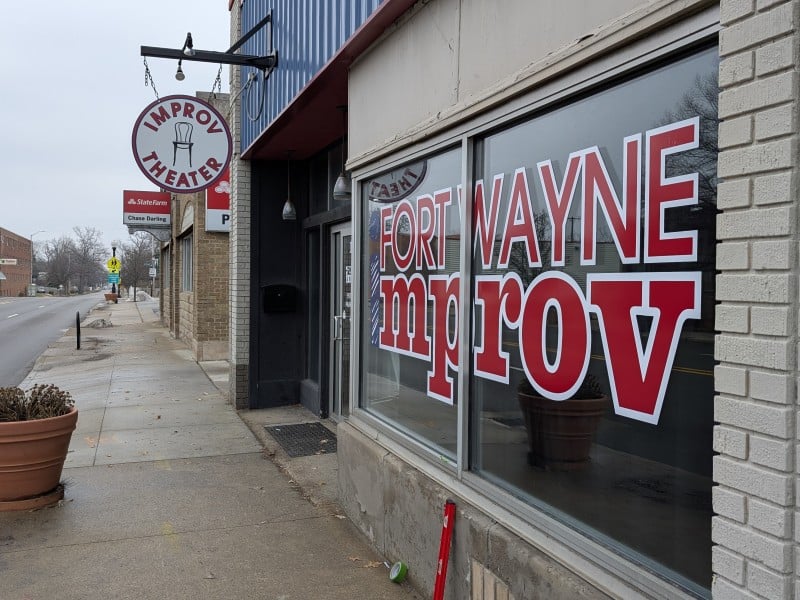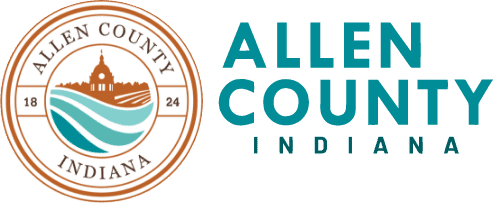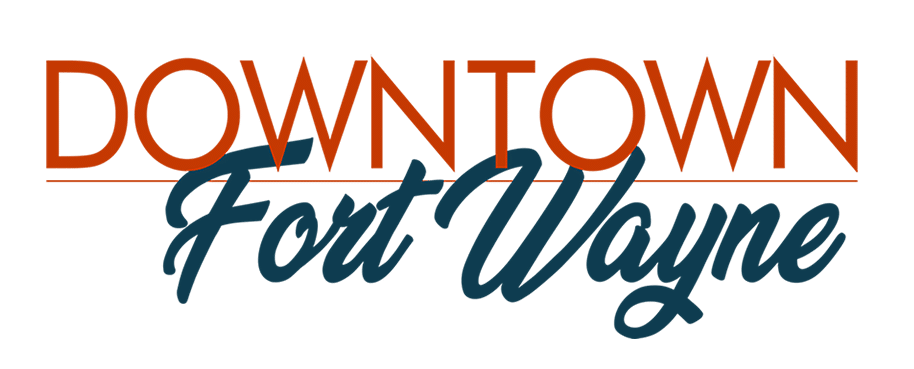Meet the new Managing Editor of Fort Wayne Ink Spot
Fred McKissack is putting his national journalism experience to work in Fort Wayne, taking the reins at Ink Spot as the U.S. faces a global pandemic, protests against racial injustice, and an election year all at once.

Before COVID-19 began, Fred McKissack was looking forward to the summer of 2020 in Fort Wayne.
A 17-year city resident who lives in the Southwood Park area, he was excited to enjoy neighborhood favorites like the Friendly Fox and the new Antonuccio’s Italian Market. As a former marketing team member for Electric Works, he was excited to see that project come to life, too, with events like the Middle Waves Music Festival.
Now that the pandemic is changing everyone’s plans—and now that Fort Wayne finds itself two weeks into historic protests against racial injustice—McKissack finds himself feeling hopeful in a new way: Watching the Black Lives Matter movement gaining momentum around the world and reporting on it as the new Managing Editor of Fort Wayne Ink Spot.
Founded in 2018 by Publisher John Dortch, Ink Spot is a bi-weekly publication that shines a positive light, informs, and gives voice to the African American community in Fort Wayne and beyond.
“Our goal is to become the number one Black media source in all of Indiana,” McKissack says.
When the paper’s former Managing Editor Bryant Rozier moved on to full-time freelancing in June, McKissack put his long history of national journalism experience to use, taking the reins as the U.S. faces a global pandemic, ongoing protests, and an election year all at once.
Input Fort Wayne sat down with McKissack to learn about his work, his perspective, and his hopes for Ink Spot during this watershed year.
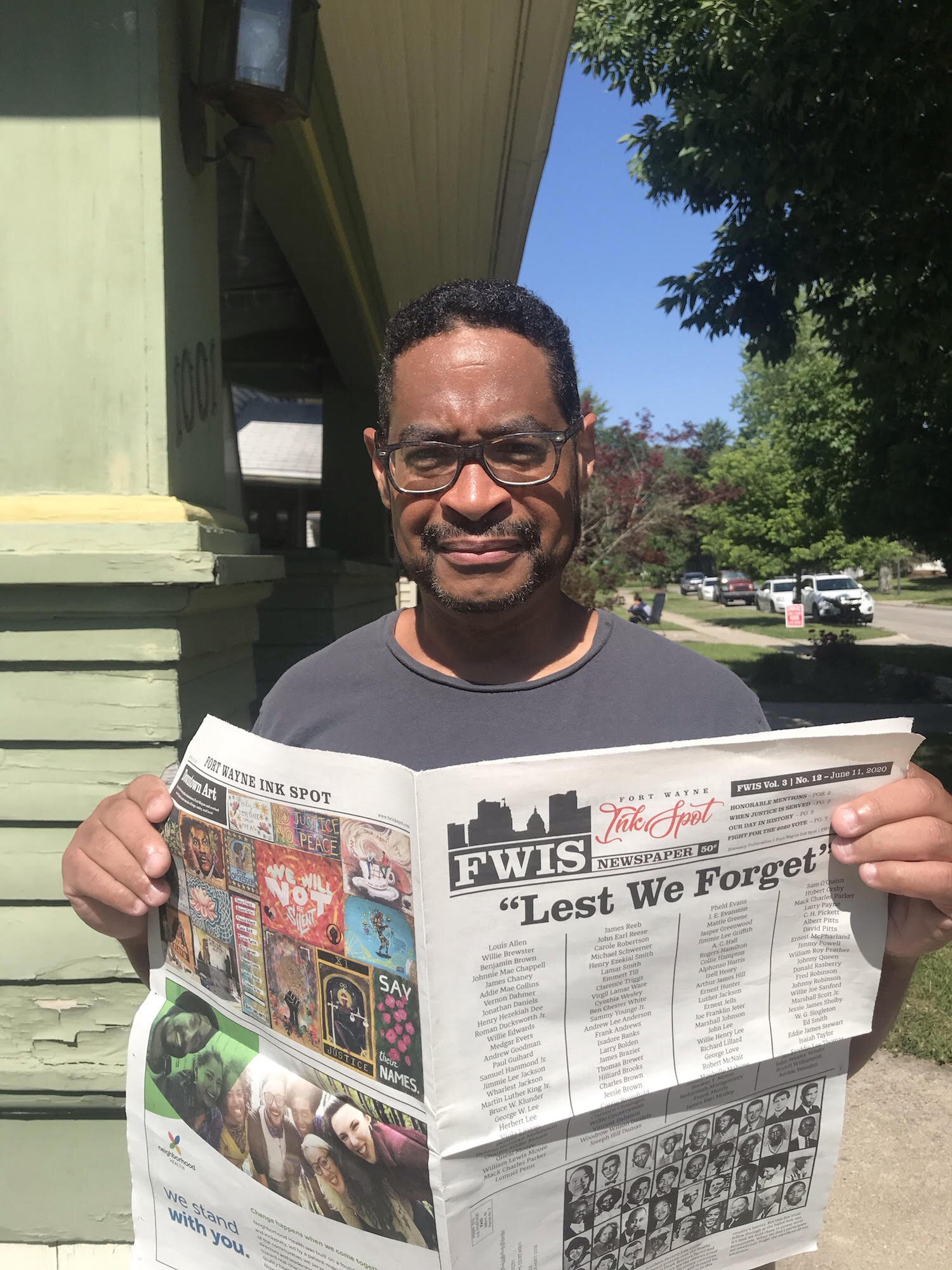
IFW: Tell us about your background and what led you to be editor of Ink Spot.
FM: I grew up in St. Louis, and I lived in several cities across the Midwest before I moved to Fort Wayne in August 2004. I came during an election cycle to work as an editorial writer at the Journal Gazette. It just seemed like the most logical next step for me.
My wife and I moved here from Madison, Wisc., where I worked at the Wisconsin State Journal and also as Associate Editor of The Progressive.
My relationship with The Progressive goes back to the mid-90s when I helped develop the Progressive Media Project to diversify and democratize our nation’s op-ed pages. So I’ve had a few decades of journalism experience, and from time to time, I’ve dabbled in marketing, too.
In the late-90s, we lived in Chicago, and I worked for two agencies there, doing interactive stuff at the beginning of the internet boom. I also worked for a marketing agency in Milwaukee. Then after 9/11, I went back into journalism and eventually moved to Fort Wayne.
After I left the Journal Gazette, I became the Managing Editor of Rethinking Schools magazine in Milwaukee, so I was telecommuting to work long before it was cool to telecommute.
Then I started freelancing when my wife was in grad school at Purdue University in West Lafayette. (She was commuting to school once or twice a week, while she was teaching sociology at Ivy Tech in Fort Wayne, where she still works.) So I was freelancing from home and working as a stay-at-home dad.
For two years, I also did a fellowship with the Center for Community Change in Washington D.C., where I was writing a lot of pieces about housing, poverty, and the fight for a $15 dollar an hour agenda.
Then I started working for Ferguson Advertising agency in Fort Wayne, and I got to work on a lot of big projects, like Electric Works, which was exciting. I also did some freelance marketing, and I wrote for Ink Spot occasionally, too.
While I was serving on the board for Vincent Village last year in Southeast Fort Wayne, I learned from a fellow board member that Bryant Rozier was leaving Ink Spot. Bryant loves freelancing, so he was ready to get back into that full time.
When I heard that the position was open, I talked to the paper’s Publisher, John Dortch, one night, and he offered me the job.
IFW: You’ve worked for a lot of publications over the years. Are there any topics or types of stories that you enjoy writing about the most?
FM: I really love explanatory journalism. I like deep dives into things. Even though I don’t think sometimes it needs to be 5,000 words long. Sometimes even the 500-word or 400-word profiles about somebody you’ve seen around town, but don’t know much about, allows you to find out that they have an interesting background.
What I like about Ink Spot is that they have done a good job of going beyond the numbers and mythologies about Southeast Fort Wayne. I live on the South side of Fort Wayne, and my son goes to South Side High School. When we first moved here, though, I don’t know how many times we were told, “Don’t live south of downtown. It’s bad.”
There are a lot of misperceptions about the entire South side and particularly, the Southeast neighborhoods.
That’s why Ink Spot is so important. It uplifts the minds of its readers. And it reminds its readers of the glorious people who live on the South Side of Fort Wayne and the wonderful things that are going on there.
With a city like Fort Wayne, sometimes the narrative is, “Look who grew up here and moved away.” But we’re interested in saying, “Look who stayed here, and look who’s coming back and doing great things here.”
It’s the kind of journalism where, yeah, we are advocating for our community. But we’re also truthful. You don’t have to write about crime stats to do that. You can write about some of the deeper things going on in this community.
We also have the luxury of time, which allows us to do a deeper dive on stories. Ink Spot comes out every two weeks, whereas the Journal Gazette is giving you the information of the day. That’s what they’re extremely good at, but we have a different charge.
IFW: We feel you on your commitment to deep, meaningful stories that go beyond crime statistics. You’ve talked about the importance of these stories. Tell us how they impact news coverage.
FM: My first full-time job in journalism after freelancing was at the St. Louis American, which is one of the oldest African American weeklies in the country. The St. Louis Post-Dispatch was the daily news, so much of the focus on the African American community there was on crime or the classic, “Here is a sad story about an unwed mother.”
But the American would get into those deeper dive stories about what was going on in the Black community. Like Ink Spot, it wasn’t so much Black stories for Black people; it was more about providing coverage of a community that is being under-covered by the local daily.
We had a number of people who were white who would also read the newspaper. It wasn’t all good news either, but it was a deeper dive into the community. If there was a shooting, it was about: Who are these people? They’re not faceless. We covered the business community, arts and entertainment, sports, religion, politics. Ink Spot feels a bit like coming home.
IFW: As a journalist in Fort Wayne now, tell us how you’ve seen the community evolve over the years and how you see Ink Spot’s role in telling the story of this community.
FM: When we first moved here, one of the selling points for the city was that it’s so close to Indianapolis and Chicago. So what you’re saying with that is: You can be in Fort Wayne five days a week, and then leave on the weekends.
All of the marketing was also geared toward saying how Fort Wayne is a great place to raise a family. And we had a child at the time, so that applied to us. But I kept thinking: If you’re younger and single, or if you don’t want to have children, what does that mean to you?
So it’s been great to watch Fort Wayne come into its own, to see Electric Works gain national attention, the opening of Promenade Park and the Landing, and to see downtown flourish. But I’d still like to see Southeast Fort Wayne flourish more, as well.
That is the agenda that needs to be pushed more. People need to really ask some of these investment boards and developers: What are we doing for the entire community? Yes, we’ll be able to shop at Electric Works and to eat downtown. But what about supporting new businesses and raising the Southeast side, too?
As a publication, we’re going to address that as much as possible. I know from my involvement on Vincent Village’s board that watching the old Coca-Cola plant transform into Bottle Works Lofts on the Southeast side has been a wonderful thing for that community to see. It has truly brightened and elevated that neighborhood. Johnnie Mae Farm bringing urban agriculture into the community is another great thing for Southeast. The new Utopian Community Grocery has been exciting to see, too. But these are just the beginning steps.
Fifteen years from now, we shouldn’t still be at this micro point of development. We should see expansion on the Southeast side and positive expansion, not gentrification.
IFW: As we look to the future of Fort Wayne, gentrification is important to consider. Tell us more about your perspective on gentrification in Fort Wayne.
FM: It’s a complicated subject. I just don’t want to see Southeast Fort Wayne explode and most of its residents be forced to move someplace else.
When I first moved here, there wasn’t a ballpark downtown. There were houses on that block. Sometimes, I wonder where all of those people went, and I wonder if they miss that neighborhood.
The Tincaps have been a fun addition to downtown, but it’s important to remember that people lived there before there was a ballpark. Even today, people are living in those houses across the street, next to Cityscape Flats, and some of those houses are going for $200,000-$300,000 now.
As we develop the city, it’s important to ask ourselves: Is everybody being lifted by the tide? Or are we still in that 80s, Reagan-esq. supply-side economics model that does not work?
Just because people on the South side can eat downtown now doesn’t mean their neighborhoods are any better. When we have the poorest zip code in the entire state (46803) in Allen County only 11 miles away from the wealthiest zip code in the state (46765), that’s a considerable disparity that we shouldn’t be proud of.
IFW: Electric Works is a major project on the South side that has the potential to gentrify the area. Tell us about your take on that project.
FM: One of the things my wife noticed when we first moved to Fort Wayne was that this Broadway corridor from downtown to Foster Park could be amazing. Seventeen years ago we were talking about this. At Ferguson, I was a member of the marketing team for Electric Works, helping to put together marketing materials and public relations strategies for the project.
I have to say, the development group has been very attuned to not trample over the history of that community, and they’ve really thought hard about how to help enhance that area. I have not always seen that as a reporter. Again I was in a different position this time, being on the inside, sending messaging out. But Electric Works is a catalyst for a region in a way that I don’t think other developments have been. It’s aligning itself with the city’s tech entrepreneurs and bringing in world-class thinkers like Travis Sheridan and Crystal Vann Wallstrom, the Managing Director of Innovation, who really reflect that kind of outreach needed for more inclusive placemaking.
I was always really wowed by that because, as a reporter, I have seen developments where I’m like, “Oh this is classic gentrification.” I saw it in St. Louis, Milwaukee, Chicago.
But with Electric Works, I would say that the leadership team really cares about uplifting West Central and its surrounding neighborhoods, as well as the entire region.
IFW: One phrase we keep hearing while talking with leaders in Southeast Fort Wayne is: We want to see less talk, more action. People want to see actionable change in their neighborhoods. Have you felt that, too?
FM: That’s what these protests about the murder of George Floyd, the murder of Breonna Taylor, and Ahmaud Arbery are all about.
All of these things have brought people out into the streets to begin the conversation about changes that need to happen. Think about the absurdity of what we’re saying. You have a group of people protesting during the worst pandemic since 1918, and they are protesting the right of Black people not to be killed by the police. That should horrify us all. And I think it has.
The pandemic will have a vaccine someday, or we’ll just learn to deal with it. But racism has no vaccine. It has been around in this country for 400 years, and people are willing to protest during a pandemic because change is just so needed.
These protests are kicking off a conversation that should be long-lasting in our country and in our community. They should last longer than just the police investigating themselves. Let’s talk about education. Let’s talk about healthcare, and how we invest in Southeast Fort Wayne, and how we invest in Black men and women, and Fort Wayne’s Latinx, Asian and other immigrant communities.
IFW: What are some inspiring things you’ve seen come of the protests so far?
FM: I was there for the Unity March last week, and one of the beautiful things I saw was that there are people I knew down there who were gay, trans, straight, kids, young adults, older people, middle class, lower class, Black, white, Latino, Asian. It was such a diverse group, and there was a moment of crossing the Martin Luther King Jr. Bridge where I looked around, and I just felt this solidarity—this idea of a commitment to equity for everyone.
I felt like Black Lives Matter really struck people in a way that finally they realized that they couldn’t stay home anymore. To see that kind of diversity in that moment was, again, soul-lifting, and now going forward, I’d like 10 years from now to say, “That was a tipping point for so much great change to happen.”
IFW: Are you hoping to make any changes at Ink Spot going forward?
FM: We’re primarily a print publication, but going forward, I want us to think of ourselves as a media platform rather than a newspaper. I’ve seen this a lot with public radio. It’s not so much a radio station as it is a public media outlet with this great website and reporters doing things on radio, the web, and social media.
I think we have to think of ourselves as a media platform now. Does that mean we post every day? Right now, we don’t have the resources for that, but when things come up that we can cover in 100 or 200 words, we can do shorter pieces to alert our readers to what’s happening.
We’re going to have a strong presence on Facebook.
IFW: Contentwise, how are things evolving at Ink Spot?
FM: We’re deciding where we want to go. Healthcare is going to be big. COVID will be with us for a while. I’d love for it to fade away, but that’s not likely to happen, so we’ll be covering how this pandemic is affecting our community. The election this fall is going to be a big topic for us, too, and particularly if COVID-19 gets worse this fall, what does that mean for voting?
For the first time in my life this year, I voted by mail, and that was a new experience for me. To be honest, it was easy enough, but I can see where somebody older might get confused. These are things we need to keep talking about.
IFW: How are you processing the situation this fall that we’re likely to have: With the protests, on top of the pandemic, on top of an election year?
FM: The way I’m processing it is that I’m glad I’m not at a daily. (laughs) Being bi-weekly does give us the time to sit down and think about our stories at length, not just stories about the candidates themselves, but the whole process of an election this year.
In the past, we’ve always talked about the problems around voter registration and the shenanigans that go on around clearing voter rolls and things like that. Not around here so much, but other places.
Now, again, because of COVID-19, we’re having to rethink all of these things. From a journalistic standpoint that’s really interesting. As an African American voter, it kind of scares me because I don’t want people to be even more disenfranchised to vote than they already are. I want Allen County to say, “We’re going to make it as easy as possible for you to have access to vote.” That’s what I want and expect to see. But I also expect for other states—look at recent debacles in Wisconsin and Georgia—to be really messy and for the election to be really messy.
In Ink Spot, you’re also going to see more stories going on about African Americans in the state, the country, and the world.
Finding solidarity with a group of people and being knowledgeable about the Blackness is not just about this one block in your city. It’s about this massive group of people who have stories and conditions that need to be discussed and talked about and understood.
It’s been wonderful to see the global solidarity of the Black Lives Matter movement. That gives me hope.


